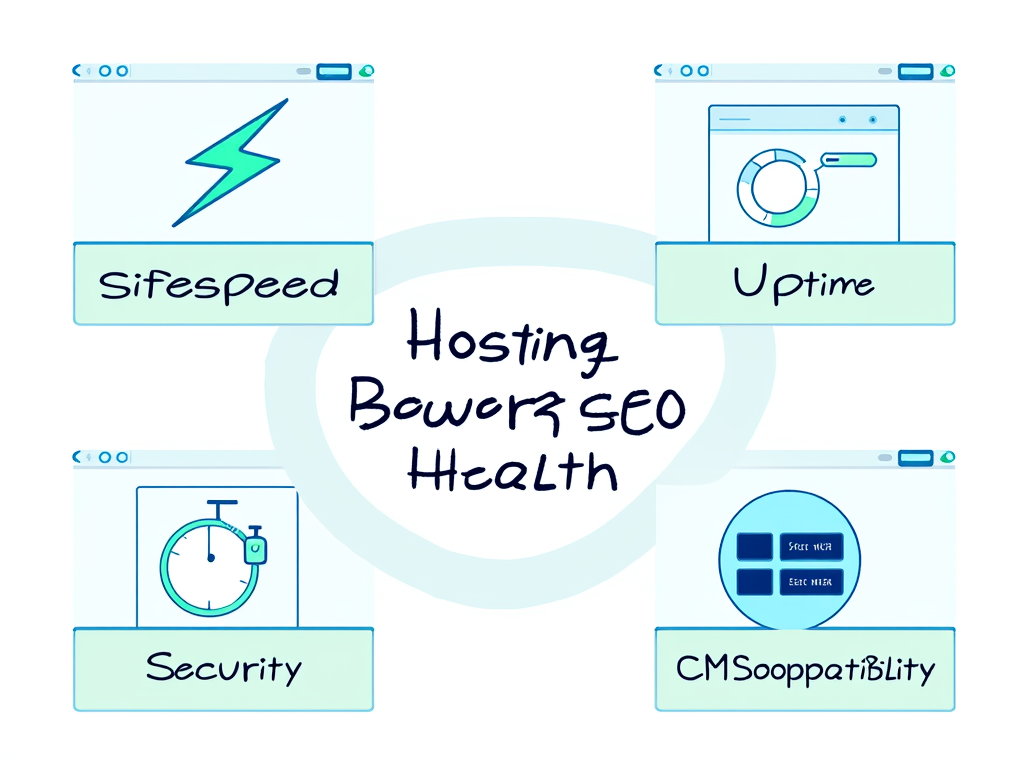ღრუბლოვანი ჰოსტინგის სერვისების დადებითი და უარყოფითი მხარეები
შესავალი
ღრუბლოვანი ჰოსტინგის სერვისებმა მკვეთრად შეცვალა ვებსაიტების მართვისა და აპლიკაციების ჰოსტინგის ლანდშაფტი, მომხმარებლებს მიაწოდა მოქნილი რესურსები და გამორჩეული შესრულება. თუმცა, ღრუბლოვანი გადაწყვეტილებების სფეროში ჩაძირვა მოითხოვს მათი უპირატესობებისა და ნაკლოვანებების ყოვლისმომცველ გაგებას. მათთვის, ვინც განიხილავს ღრუბლოვან ჰოსტინგზე გადასვლას ან აფასებს მიმდინარე სერვისებს, უმნიშვნელოვანესია ამ ასპექტების დეტალურად გაანალიზება.
რა არის ღრუბლოვანი ჰოსტინგი?
ღრუბლოვანი ჰოსტინგი გულისხმობს ვებსაიტების ან აპლიკაციების ვირტუალური სერვერების ქსელში შენახვას, რომლებიც იყენებენ რესურსებს მრავალი ფიზიკური სერვერიდან. ეს კონფიგურაცია განსხვავდება ტრადიციული ჰოსტინგის მეთოდებისგან, სადაც ერთი სერვერი ხშირად მართავს ყველა ოპერაციას. ღრუბლოვანი ჰოსტინგის ძირითადი იდეაა მონაცემებისა და სამუშაო დატვირთვის განაწილება რამდენიმე ურთიერთდაკავშირებულ სერვერზე, რაც მნიშვნელოვნად ზრდის საიმედოობას და მასშტაბირებას. ბიზნესის განვითარებასთან ერთად, ჰოსტინგის რესურსების მყისიერად ადაპტირების შესაძლებლობას შეუძლია კონკურენტული უპირატესობა უზრუნველყოს.
ღრუბლოვანი ჰოსტინგის ძირითადი უპირატესობები
-
მასშტაბირება და მოქნილობა
ღრუბლოვანი ჰოსტინგი გაზრდილი მასშტაბირების სინონიმია. მოთხოვნის ცვალებადობის პირობებში, ბიზნესებს შეუძლიათ მყისიერად გაზარდონ ან შეამცირონ რესურსები - იქნება ეს გამოთვლითი სიმძლავრე, მეხსიერება თუ გამტარუნარიანობა - ფიზიკური განახლების საჭიროების გარეშე. მაგალითად, ვებ ტრაფიკის სეზონური პიკის დროს, ღრუბლოვანი რესურსები ადვილად შეიძლება მოერგოს გაზრდილ დატვირთვას, რაც უზრუნველყოფს ოპტიმალურ მუშაობას. -
მაღალი საიმედოობა და უწყვეტი მუშაობის ხანგრძლივობა
ღრუბლოვანი ჰოსტინგის ერთ-ერთი ყველაზე მნიშვნელოვანი უპირატესობა მისი არქიტექტურაა. თუ ერთი სერვერი გაითიშება, ქსელში არსებული სხვა სერვერები მყისიერად ფარავენ სამუშაო დატვირთვას, რაც მინიმუმამდე ამცირებს შეფერხების დროს. ეს ზედმეტობა უზრუნველყოფს მაღალ ხელმისაწვდომობას, რაც სასიცოცხლოდ მნიშვნელოვანია იმ ბიზნესებისთვის, რომლებიც ეყრდნობიან თავიანთ სერვისებზე მუდმივ წვდომას. ბევრი ღრუბლოვანი პროვაიდერი ამ საიმედოობას ადასტურებს ხელშესახები მომსახურების დონის შეთანხმებებით (SLA), რაც მათ ავალდებულებს პასუხისმგებელნი იყვნენ უწყვეტი მუშაობის ვალდებულებებზე. -
ხარჯების ეფექტურობა „გადაიხადე როგორც გამოიყენე“ მოდელების მეშვეობით
ბევრი ორგანიზაციისთვის მნიშვნელოვანი მიმზიდველობაა ღრუბლოვანი ჰოსტინგის მოქნილი ფასების სტრუქტურა. მომხმარებლები ხშირად აწყდებიან გადახდის მეთოდს, სადაც ხარჯები პირდაპირ კავშირშია რესურსების რეალურ გამოყენებასთან და არა ფიქსირებულ გადასახადებთან. ამ მიდგომამ შეიძლება მნიშვნელოვანი დანაზოგი გამოიწვიოს, განსაკუთრებით სტარტაპებისა და მცირე ბიზნესებისთვის, რომლებსაც შეიძლება ჰქონდეთ არაპროგნოზირებადი რესურსების საჭიროებები ან შეზღუდული საწყისი ბიუჯეტი. -
კატასტროფების შედეგად გაძლიერებული აღდგენა
ღრუბლოვანი ჰოსტინგი კატასტროფის შემდეგ აღდგენის მძლავრ ვარიანტებს გთავაზობთ. მონაცემების მრავალ ადგილას განაწილებით, ბიზნესები მინიმუმამდე ამცირებენ სისტემის გაუმართაობის გამო მონაცემთა დაკარგვის რისკს. სარეზერვო ასლების შექმნა შესაძლებელია ავტომატიზირებული იყოს, რაც უზრუნველყოფს კრიტიკული ინფორმაციის რეგულარულად შენახვას და აღდგენას, რაც ხელს უწყობს კატასტროფის შემდეგ აღდგენის გეგმების შემსუბუქებას. -
მენეჯმენტის მოხერხებულობა
დღევანდელი ღრუბლოვანი ჰოსტინგის პლატფორმები ხშირად აღჭურვილია მომხმარებლისთვის მოსახერხებელი მართვის ინტერფეისებით. მართვის პანელები, როგორიცაა cPanel ან მომწოდებლის სპეციფიკური დაფები, საშუალებას აძლევს ტექნიკურ სფეროში დამწყებებსაც კი დააკონფიგურირონ და მართონ თავიანთი ჰოსტინგის გარემო ბრძანების ხაზის რთულ ოპერაციებში ჩაღრმავების გარეშე. -
ხელმისაწვდომობა
ტრადიციული ჰოსტინგისგან განსხვავებით, ღრუბელზე დაფუძნებული გადაწყვეტილებები ხელმისაწვდომია ნებისმიერი ადგილიდან, სადაც არის ინტერნეტთან კავშირი. წვდომის ეს დონე იდეალურად შეესაბამება დისტანციური მუშაობის მზარდ ტენდენციას, რაც გუნდებს საშუალებას აძლევს ეფექტურად ითანამშრომლონ გეოგრაფიული ბარიერების მიუხედავად. -
უფასო საკრედიტო შეთავაზებები
ბევრი წამყვანი ღრუბლოვანი სერვისის პროვაიდერი, როგორიცაა Amazon Web Services (AWS) და Google Cloud, ახალბედებს მნიშვნელოვან კრედიტებს სთავაზობს. ეს არა მხოლოდ პოტენციურ მომხმარებლებს საშუალებას აძლევს, შეისწავლონ პლატფორმა ფინანსური სირთულეების გარეშე, არამედ ხელს უწყობს ახალი პროექტების ექსპერიმენტებს ან არსებული აპლიკაციების მასშტაბირებას.
ღრუბლოვანი ჰოსტინგის უარყოფითი მხარეები და გამოწვევები
-
კომპლექსური ფასები და მენეჯმენტი
მიუხედავად იმისა, რომ ცვლადი ფასების მოდელი ზოგიერთისთვის სასარგებლოა, ის ასევე შეიძლება ორლესული მახვილიც იყოს. ხარჯებზე მოქმედი მრავალი ფაქტორი შეიძლება დამაშინებელი იყოს ახალბედებისთვის, რომლებიც მიჩვეულები არიან ფიქსირებული ფასების მოდელებს. ამ სირთულემ შეიძლება გამოიწვიოს მოულოდნელი გადასახადები, თუ რესურსების მოხმარება მკაცრად არ კონტროლდება. -
ინტერნეტთან დაკავშირებაზე დამოკიდებულება
ინტერნეტზე ფუნდამენტური დამოკიდებულება ღრუბლოვანი ჰოსტინგის განუყოფელი ნაწილია. თუ კავშირი შეფერხებულია ან ნელია, ჰოსტირებულ სერვისებზე წვდომა შეუძლებელი ხდება. არასანდო ინტერნეტ ინფრასტრუქტურის მქონე ადგილებში ორგანიზაციებს შესაძლოა მნიშვნელოვანი სირთულეები შეექმნათ ამ ჰოსტინგის მოდელის პირობებში. -
დადგენილი საჭიროებებისთვის უფრო მაღალი ხარჯები
მიუხედავად იმისა, რომ ღრუბლოვანი ჰოსტინგი მასშტაბირებას გვთავაზობს, სტაბილური, დაბალი რესურსების მოთხოვნილებების მქონე ბიზნესებისთვის ის შეიძლება უფრო ძვირი იყოს, ვიდრე ტრადიციული ალტერნატივები. ფრთხილად შეფასება უმნიშვნელოვანესია იმის უზრუნველსაყოფად, რომ მასშტაბირების ფუნქციები შეესაბამებოდეს ბიზნესის რეალურ საჭიროებებს. -
ინფრასტრუქტურაზე შეზღუდული კონტროლი
ტექნიკური გუნდებისთვის, რომლებიც მიჩვეულები არიან მორგებული შესრულების რეგულირებას, ღრუბლოვანი ჰოსტინგი შეიძლება შემზღუდველი ჩანდეს. ფიზიკური სერვერების კონტროლი და ინფრასტრუქტურასთან პირდაპირი ურთიერთქმედება შეიძლება აუცილებელი იყოს გარკვეული ტიპის აპლიკაციებისთვის და შეიძლება იმედგაცრუება გამოიწვიოს გუნდებმა, რომლებიც უფრო მეტ ავტონომიას ეძებენ. -
პოტენციური უსაფრთხოების რისკები
მესამე მხარის სერვერებზე მონაცემების შენახვა უსაფრთხოების განსხვავებულ დინამიკას ქმნის. მიუხედავად იმისა, რომ ღრუბლოვანი პროვაიდერები უსაფრთხოების მოწინავე ზომებს ნერგავენ, ისინი მაინც ატარებენ დარღვევების ან არაავტორიზებული წვდომის რისკებს, განსაკუთრებით იმ ბიზნესებისთვის, რომლებიც მგრძნობიარე ინფორმაციას ამუშავებენ. -
კონფიდენციალურობასთან დაკავშირებული საკითხები
ღრუბელში განთავსებულმა მონაცემებმა შეიძლება კონფიდენციალურობის საკითხები წამოჭრას, რაც დიდწილად დამოკიდებულია პროვაიდერის პოლიტიკასა და ადგილობრივ რეგულაციებზე. ორგანიზაციებმა, რომლებიც მგრძნობიარე მონაცემებთან მუშაობენ, ყურადღებით უნდა დააკვირდნენ შესაბამისობის ვალდებულებებს, განსაკუთრებით მკაცრად რეგულირებულ ინდუსტრიებში.
ღრუბლოვანი ჰოსტინგის პრაქტიკული გამოყენება და გამოყენების შემთხვევები
ღრუბლოვანი ჰოსტინგის მრავალფეროვანი უპირატესობები პროფესიონალური გამოყენების შემთხვევების ფართო სპექტრს მოიცავს:
-
ელექტრონული კომერციის პლატფორმები: ბიზნესებს შეუძლიათ შეუფერხებლად გააფართოვონ თავიანთი ოპერაციები პიკური სავაჭრო ღონისძიებების დროს, რაც უზრუნველყოფს ოპტიმალურ მუშაობას და მომხმარებლის გამოცდილებას.
-
ვებ და აპლიკაციების შემუშავება: სწრაფი განვითარების ციკლები სარგებლობს პროექტების მრავალი ვერსიის სწრაფად შექმნის, ტესტირებისა და განლაგების შესაძლებლობით რესურსების შეზღუდვის გარეშე.
-
საწარმოს გადაწყვეტილებები: მსხვილი ორგანიზაციები იყენებენ ძლიერ ინფრასტრუქტურას გაძლიერებული საიმედოობისა და გლობალური სამუშაო ძალისთვის.
-
მცირე და საშუალო ბიზნესები (SMBs): ხარჯების დაზოგვასა და მინიმალურ წინასწარ ინვესტიციებზე ფოკუსირებით, ბევრი მცირე და საშუალო ბიზნესი ღრუბლოვან ჰოსტინგზე გადადის, რაც მათ საშუალებას აძლევს განვითარდნენ ფიზიკური აპარატურის მოვლა-პატრონობის ტვირთის გარეშე.
რჩევები ღრუბლოვანი ჰოსტინგის სერვისების არჩევისა და მართვისთვის
ღრუბლოვანი ჰოსტინგის ლანდშაფტში ეფექტურად ნავიგაციისთვის:
-
გადახედეთ მომსახურების ხელშეკრულებებს (SLA) და დარწმუნდით, რომ არჩეული პროვაიდერი აკმაყოფილებს თქვენს მიერ გარანტირებულ უწყვეტ მუშაობასა და მომსახურებას.
-
გამოიყენეთ ღრუბლოვანი პროვაიდერების მიერ ხელმისაწვდომი ფასების კალკულატორები, რათა შეაფასოთ ხარჯები მოსალოდნელი გამოყენების საფუძველზე და თავიდან აიცილოთ უსიამოვნო სიურპრიზები ყოველთვიურად.
-
კონტრაქტების დადებამდე ისარგებლეთ სარეკლამო კრედიტებით მომსახურების შესამოწმებლად.
-
მგრძნობიარე ინფორმაციის დასაცავად დანერგეთ ძლიერი უსაფრთხოების პოლიტიკა, მათ შორის მონაცემთა დაშიფვრა და მრავალფაქტორიანი ავთენტიფიკაცია.
-
თუ სერვერების მართვის ექსპერტიზა შეზღუდულია, განიხილეთ მართული ღრუბლოვანი სერვისები, რაც გუნდებს საშუალებას მისცემს, ყურადღება გაამახვილონ ძირითად ბიზნეს საქმიანობაზე და არა ტექნოლოგიურ სპეციფიკაზე.
ღრუბლოვანი ჰოსტინგის სერვისები მნიშვნელოვან უპირატესობებს გვთავაზობს, როგორიცაა მასშტაბირება, საიმედოობა და ეკონომიურობა. თუმცა, ბიზნესებმა ეს ყველაფერი უნდა შეაფასონ ისეთ გამოწვევებთან შედარებით, როგორიცაა ფასების სირთულე, უსაფრთხოება და პოტენციური შეფერხებები. ღრუბლოვანი გადაწყვეტილებების ეფექტურად გამოყენება მოითხოვს საფუძვლიან გაგებას და დაგეგმვას, რაც უზრუნველყოფს, რომ ორგანიზაციებმა სრულად გამოიყენონ ამ ციფრული რევოლუციის პოტენციალი.
მეტა აღწერა: ჩაუღრმავდით ღრუბლოვანი ჰოსტინგის სერვისების დადებით და უარყოფით მხარეებს, შეისწავლეთ მათი უნიკალური უპირატესობები და გამოწვევები, რათა გააძლიეროთ თქვენი გადაწყვეტილების მიღება სწორი ჰოსტინგის გადაწყვეტის არჩევისას.
საუკეთესო შეთავაზებები:
გსურთ შექმნათ თქვენი საკუთარი კომპანიის ვებსაიტი ან შექმნათ თქვენი საკუთარი ონლაინ ბიზნესი ინტერნეტში?
– ვებ ჰოსტინგი
– დომენის რეგისტრაცია
– ვებ-განვითარება
– საიტის შემქმნელი

## ფაქტორები, რომლებიც გავლენას ახდენენ ღრუბლოვანი ჰოსტინგის არჩევანზე
1. ბიზნესის საჭიროებების შეფასება
ღრუბლოვანი ჰოსტინგის გადაწყვეტაში ჩაძირვამდე, უმნიშვნელოვანესია თქვენი კონკრეტული ბიზნეს საჭიროებების ზედმიწევნით შეფასება. თქვენი ვებსაიტის გამოცდილების ტრაფიკის მოცულობის და თქვენი აპლიკაციებისთვის საჭირო რესურსების გააზრება პირდაპირ გავლენას მოახდენს იმ ღრუბლოვანი სერვისების ტიპზე, რომლებიც საუკეთესოდ შეესაბამება თქვენ. მაგალითად, საცალო ვაჭრობის სტარტაპი, რომელიც დღესასწაულების დროს ტრაფიკის სწრაფ ზრდას ელის, ტრადიციულ ჰოსტინგთან შედარებით ღრუბლოვანი გადაწყვეტის მოქნილობით ისარგებლებს. პირიქით, სტაბილურად დაბალი ტრაფიკის მქონე ბლოგმა შეიძლება მსგავსი წარმატება მიაღწიოს უფრო მარტივი საერთო ჰოსტინგის გეგმის გამოყენებით.
2. შესრულების მაჩვენებლები
ღრუბლოვანი ჰოსტინგის მუშაობა მნიშვნელოვნად განსხვავდება პროვაიდერების მიხედვით, ამიტომ საჭიროა სხვადასხვა სერვისის ვარიანტების შეფასება კონკრეტული შესრულების მეტრიკის საფუძველზე. ისეთი ძირითადი ინდიკატორები, როგორიცაა უწყვეტი მუშაობის დრო, შეყოვნება და რეაგირების დრო, განსაზღვრავს, თუ რამდენად კარგად იმუშავებენ სერვისები ზეწოლის ქვეშ. აუცილებლად წაიკითხეთ პოტენციური პროვაიდერების მომხმარებელთა მიმოხილვები და შესრულების შეფასებები, ხაზი გაუსვით მათ ისტორიულ უწყვეტ მუშაობის მაჩვენებლებს და რეაგირების უნარს მაღალი დატვირთვის პერიოდებში.
3. უსაფრთხოების პოზა და შესაბამისობა
მგრძნობიარე მონაცემებთან ურთიერთობისას უსაფრთხოება არ უნდა იყოს მეორეხარისხოვანი. აუცილებელია პოტენციური ღრუბლოვანი სერვისების შეფასება მათი უსაფრთხოების ზომების თვალსაზრისით, მათ შორის დაშიფვრის სტანდარტების, firewall-ის კონფიგურაციების და GDPR ან HIPAA-ს მსგავსი რეგულაციების დაცვის თვალსაზრისით. პროვაიდერის უსაფრთხოებისადმი ერთგულება უნდა მოგცეთ სიმშვიდე და ასევე ნათლად გაიგოთ თქვენი პასუხისმგებლობა მონაცემთა დაცვაში.
4. მხარდაჭერა და დოკუმენტაცია
ტექნიკური სირთულეები შეიძლება წარმოიშვას ნებისმიერი ჰოსტინგის გადაწყვეტის დროს და მხარდაჭერის ხარისხს შეუძლია თამაშის წესების შეცვლა. აირჩიეთ პროვაიდერები, რომლებიც გთავაზობენ სწრაფ მომხმარებელთა მომსახურებას და ყოვლისმომცველ დოკუმენტაციას. მხარდაჭერის ხელმისაწვდომობა სხვადასხვა არხებით - ონლაინ ჩატი, ელექტრონული ფოსტა და ტელეფონი - გასათვალისწინებელი მნიშვნელოვანი ფაქტორია, რაც სანდოობის ფენას მატებს პრობლემების მოგვარებისას ან ღრუბლოვანი სისტემის ოპტიმიზაციის შესახებ რჩევების საჭიროებისას.
5. მიგრაციის სიმარტივე
სხვა ჰოსტინგის გადაწყვეტიდან გადასვლისას თუ ახალი ჰოსტინგის დაწყებას აპირებთ, შეუფერხებელი მიგრაციის პროცესი უმნიშვნელოვანესია. მოძებნეთ პროვაიდერები, რომლებიც გთავაზობენ მიგრაციის დახმარებას ან ინსტრუმენტებს შეუფერხებელი გადასვლის ხელშესაწყობად. ეს მინიმუმამდე ამცირებს მონაცემების, აპლიკაციებისა და სერვისების გადატანის დროს შეფერხებებს, რაც უზრუნველყოფს ბიზნესის უწყვეტობას გადასვლის დროს.
6. ინტეგრაციის შესაძლებლობები
ღრუბლოვანი ჰოსტინგის სერვისი არა მხოლოდ მიმდინარე საჭიროებებს უნდა აკმაყოფილებდეს, არამედ სხვა პლატფორმებთან და აპლიკაციებთან მარტივად უნდა ინტეგრირდეს. იმის გაგება, თუ რამდენად კარგად უკავშირდება სხვადასხვა ღრუბლოვანი გადაწყვეტილებები არსებულ ინსტრუმენტებს ან გვთავაზობენ თუ არა ისინი API-ებს მორგებული ინტეგრაციებისთვის, შეიძლება გავლენა იქონიოს თქვენი ოპერაციული ეფექტურობაზე. დარწმუნდით, რომ თქვენი ჰოსტინგის გარემო ეფექტურად ურთიერთობს პროგრამულ უზრუნველყოფასთან და სერვისებთან, რომლებზეც თქვენი ორგანიზაციაა დამოკიდებული.
დასკვნა
ციფრული ბიზნესის ცვალებად გარემოში, ღრუბლოვანი ჰოსტინგი შესანიშნავ გადაწყვეტად გვევლინება, რომელიც მოქნილობას, მასშტაბირებას და მაღალ შესრულებას უზრუნველყოფს. თუმცა, მისი მრავალი უპირატესობის მიუხედავად, თანმხლები გამოწვევები ფრთხილად განხილვას მოითხოვს. ბიზნესის საჭიროებების შეფასებით, შესრულების მეტრიკის გაგებით და უსაფრთხოების პრიორიტეტულობის მინიჭებით, თქვენ საფუძველს ჩაუყრით სწორი ღრუბლოვანი ჰოსტინგის პროვაიდერის არჩევისთვის. საბოლოო ჯამში, ამ არჩევანს შეუძლია თქვენი ბიზნესის აყვავების საშუალება მისცეს კონკურენტულ ციფრულ გარემოში, რაც ზრდის პარალელურად საიმედო მომსახურების მიწოდებას უზრუნველყოფს.
გონივრულია, ღრუბლოვანი ჰოსტინგის გზას სტრატეგიული მიდგომით მიუდგეთ, მუდმივად მოერგოთ ბაზრის ცვალებად მოთხოვნებს და ამავდროულად, გამოიყენოთ ღრუბლოვანი გადაწყვეტილებების მიერ შემოთავაზებული შესაძლებლობები. გონივრულად არჩევის შემთხვევაში, ღრუბლოვანი ჰოსტინგი უბრალო სერვისიდან ბიზნესისთვის მნიშვნელოვან ხელშემწყობ ფაქტორად გარდაიქმნება, რაც გზას უხსნის ინოვაციას, ეფექტურობასა და წარმატებას.
ღრუბლოვანი გადაწყვეტილებების მაქსიმალურად გამოყენების შესახებ დამატებითი ინფორმაციისთვის იხილეთ ეს რესურსები:
- Секрети настройки со Make.com: https://www.finddomain.ge/
- Секрети настройки со Make.com: https://www.finddomain.ge/
- Секрети настройки со Make.com: https://www.finddomain.ge/
მეტა აღწერა: გამოიკვლიეთ ღრუბლოვანი ჰოსტინგის გადაწყვეტილებებზე მოქმედი კრიტიკული ფაქტორები, შეაფასეთ ბიზნესის საჭიროებები, უსაფრთხოების მდგომარეობა, მხარდაჭერა და ინტეგრაციის შესაძლებლობები, რათა უზრუნველყოთ თქვენი ორგანიზაციის ოპტიმალური მუშაობა.
საუკეთესო შეთავაზებები:
გსურთ შექმნათ თქვენი საკუთარი კომპანიის ვებსაიტი ან შექმნათ თქვენი საკუთარი ონლაინ ბიზნესი ინტერნეტში?
– ვებ ჰოსტინგი
– დომენის რეგისტრაცია
– ვებ-განვითარება
– საიტის შემქმნელი






დატოვეთ გამოხმაურება ამის შესახებ